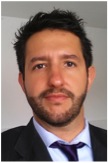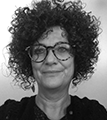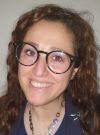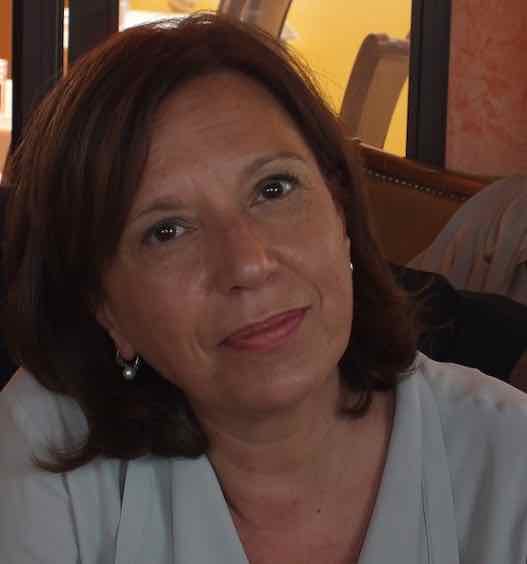Studying at the University of Verona
Academic calendar
The academic calendar shows the deadlines and scheduled events that are relevant to students, teaching and technical-administrative staff of the University. Public holidays and University closures are also indicated. The academic year normally begins on 1 October each year and ends on 30 September of the following year.
Course calendar
The Academic Calendar sets out the degree programme lecture and exam timetables, as well as the relevant university closure dates..
| Period | From | To |
|---|---|---|
| MED ING annuale | Oct 2, 2024 | Sep 30, 2025 |
| MED ING 1° semestre | Oct 2, 2024 | Dec 20, 2024 |
| MED ING 2° semestre | Jan 2, 2025 | Sep 30, 2025 |
| Period | From | To |
|---|---|---|
| Tutti i Santi | Nov 1, 2024 | Nov 1, 2024 |
Exam calendar
To view all the exam sessions available, please use the Exam dashboard on ESSE3. If you forgot your login details or have problems logging in, please contact the relevant IT HelpDesk, or check the login details recovery web page.
Should you have any doubts or questions, please check the Enrollment FAQs
Academic staff
Study Plan
The Study Plan includes all modules, teaching and learning activities that each student will need to undertake during their time at the University.
Please select your Study Plan based on your enrollment year.
1° Year
| Modules | Credits | TAF | SSD |
|---|
2° Year It will be activated in the A.Y. 2025/2026
| Modules | Credits | TAF | SSD |
|---|
3° Year It will be activated in the A.Y. 2026/2027
| Modules | Credits | TAF | SSD |
|---|
4° Year It will be activated in the A.Y. 2027/2028
| Modules | Credits | TAF | SSD |
|---|
5° Year It will be activated in the A.Y. 2028/2029
| Modules | Credits | TAF | SSD |
|---|
6° Year It will be activated in the A.Y. 2029/2030
| Modules | Credits | TAF | SSD |
|---|
| Modules | Credits | TAF | SSD |
|---|
| Modules | Credits | TAF | SSD |
|---|
| Modules | Credits | TAF | SSD |
|---|
| Modules | Credits | TAF | SSD |
|---|
| Modules | Credits | TAF | SSD |
|---|
| Modules | Credits | TAF | SSD |
|---|
Legend | Type of training activity (TTA)
TAF (Type of Educational Activity) All courses and activities are classified into different types of educational activities, indicated by a letter.
Clinical Surgery (It will be activated in the A.Y. 2029/2030)
Teaching code
4S01143
Credits
14
Scientific Disciplinary Sector (SSD)
-
Learning objectives
The objective of the Clinics in Surgery teaching is to provide knowledge on the possible clinical presentations of pathologies of surgical interest both in elective and emergency contexts and on integrating these with the most advanced diagnostic techniques, with or without the aid of artificial intelligence and machine learning techniques. The same approach will be used to diagnose and treat postoperative complications. The module will also provide data analysis and machine learning elements to increase diagnostic presumption, and abilities to improve doctor-patient communication in possible surgical scenarios (communication of prognosis in benign and malignant pathological contexts, and of surgical outcomes)
The practical internship will allow you to carry out practical experiences using advanced medical tools and technologies, including minimally invasive surgery (video-laparoscopic and robot-assisted), and with the presentation of materials commonly used in a surgical context.
GENERAL SURGERY MODULE
The module aims specifically to provide students with the knowledge and skills for comprehensive management, from diagnosis to treatment, through the discussion of illustrative clinical cases of: 1. Esophago-gastrointestinal tract pathologies; 2. Pancreatic pathology; 3. Hepatic and biliary tract pathology; 4. Splenic pathology; 5. Benign anorectal pathology; 6. Hernia pathology; 7. Breast pathology; 8. Arterial and venous pathology; 9. Mediastinal and thoraco-pulmonary pathology; 10. Gastrointestinal hemorrhages; 11. Peritonitis; 12. Acute abdomen.
UROLOGY MODULE.
The objectives of the course are to teach the urological knowledge necessary for future doctors; in addition,the technological aspects of diagnostic means and surgical approaches in urology will be explored in depth. The student will therefore have to learn: terminology, clinical characteristics and therapeutic approach to the clinical presentations of urological pathologies; epidemiology, risk factors, clinical presentation, diagnosis and therapy of urological neoplasms,prostatic hypertrophy and urinary stones; in the discussion of surgical approaches,particular attention will be given to robotic surgery, laser surgery and laparoscopic and endoscopic instrumentation used
in urology.
PRACTICAL TEACHING OF UROLOGY
The educational objective of the internship is to provide the student with basic clinical skills on the main urological pathologies.
ORTHOPEDICS MODULE
The student will be able to recognize the main muscoloskeletal disorders and to know the therapeutic approaches to the most frequent pathologies. Knowledges implementation on advanced engineering and technological implications for the diagnosis and treatment of orthopedic and traumatological pathologies: bone and joint biophysics, 3d printing modeling from virtual imaging, surgical planning by means of navigation, augmented reality, robotics, custom-made implants and c and is derived from the arithmetic mean of the marks of the two modules.ut templates, patient-specific instrumentations (PSI).
PRACTICAL TEACHING OF ORTHOPEDICS
The educational objective of the internship is to provide the student with basic clinical skills on the main orthopedic pathologies.
Robotics in Medicine MODULE.
The Robotics in Medicine module aims to provide students with the fundamentals of mechanics and control necessary to understand the operation, potential, and limitations of robots in the medical field with a focus on urology, general medicine, orthopedics, and diagnostics.
PRACTICAL INTERNSHIP
The practical internship will allow for practical experiences with the use of advanced medical tools and technologies, including minimally invasive surgery (videolaparoscopic and robot-assisted), and the presentation of materials commonly used in a surgical setting.
Examination Methods
For orthopedics: 3 written tests during the lessons period. A test will be administrated every 3-4 lessons on the concluded programme. Oral examination on request at the examination calls. The examination about the other modules is composed of an oral test to assess the knowledge of the contents of the course.
Evaluation criteria
The oral test assesses the level of knowledge of theoretical content, language property in the description of the clinical presentation of surgical diseases, logical/deductive diagnostic abilities, and appropriate use of diagnostics. Robotics Module Knowledge and Understanding: Upon completion of the course, the student should demonstrate knowledge and understanding of the operation and characteristics of robots in the medical field. Ability to apply knowledge and understanding: The student will be expected to demonstrate. - be able to apply the acquired knowledge to analyze the properties of a robotic system for surgery, rehabilitation, and diagnostics, - be able to define the medical requirements for designing a robotic system for medical use, - be able to collaborate with technological experts (e.g., computer, automatic, mechanical engineers) to define the specifications of new robotic systems. The final grade is considered positive for scores equal to or greater than 18/30 in each module of the course.
Free choice courses
Modules not yet included
Career prospects
Module/Programme news
News for students
There you will find information, resources and services useful during your time at the University (Student’s exam record, your study plan on ESSE3, Distance Learning courses, university email account, office forms, administrative procedures, etc.). You can log into MyUnivr with your GIA login details: only in this way will you be able to receive notification of all the notices from your teachers and your secretariat via email and soon also via the Univr app.

 giuseppe.bertini@univr.it
giuseppe.bertini@univr.it
 045-802-7682
045-802-7682








